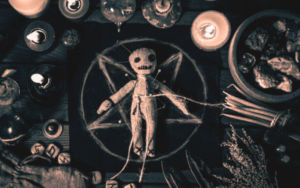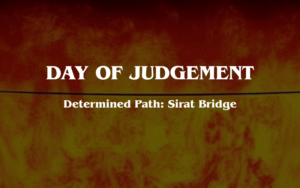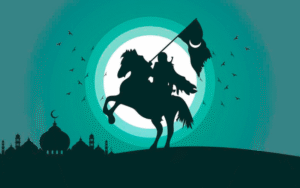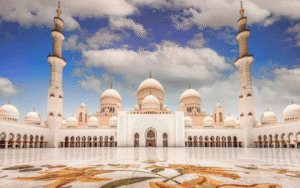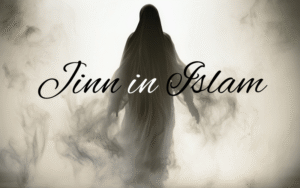Islamic Perspective on Death: The Grave, Barzakh & Afterlife
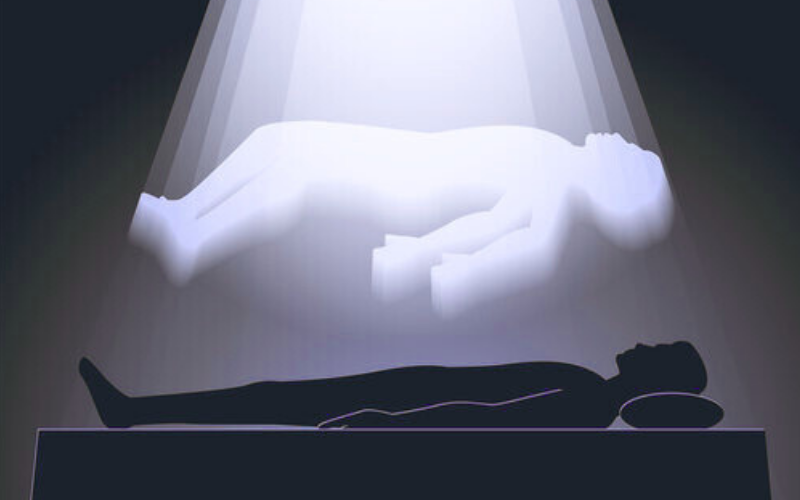
Have you ever paused and truly considered the profound Islamic perspective on death? It teaches that the “I” who is planning and dreaming might cease to exist in the very next moment. In a single instant, all familiar faces could become distant. All the noise of life could fall silent. Can you fathom how sudden this departure will be? We must abandon all worldly illusions for an unknown journey. We simply have no idea when or how it will begin.
Imagine if my journey ends this evening on some turn in the road. Death will erase my cherished name, replacing it with a new identity: just a “body.” The home filled with so much memory will no longer offer me shelter. A cold porch or an open yard will become my final waiting place. Someone might sit beside me, softly reciting the Holy Quran. The air will grow heavy with the sound of another’s muffled sobs. Relatives will receive the news: “He is no more.” The closest ones might rush over in the dead of night; others will arrive with the morning light. They will schedule the funeral prayer for 10 or 11 AM. So many of life’s accounts remain unsettled. So many words are left unsaid. I couldn’t say a final word to the mother who bore me. Her sacrifices allowed me to see the light of this world.
I couldn’t leave any final guidance for my wife and children, though all my dreams were woven around them. What will become of my wealth? Who will take over my unfinished work? I had no chance to explain anything. The helplessness is profound. A single word, “death,” strips me of all my rights and plans.
The Final Farewell and the Call of the Grave
As morning breaks, preparations for my final resting place will begin. Someone will go to cut bamboo. Another will rush to buy the pure white shroud (kafan) and rosewater. Amidst this, they will give me my last bath with lukewarm water infused with Sidr leaves. They will carefully wrap me in the simple white cloth. When they place me on the mosque’s bier, a crowd will gather for one last look. I will be oblivious, deep in an eternal sleep. This entire process demonstrates the practical Islamic perspective on death, emphasizing purity and respect for the departed.
After the funeral prayer (Janaza), a wave of grief will erupt as they lift the bier from my home for the last time. This is the farewell from which there is no return. After the prayer, they will lower me into that dark chamber the Quran calls the ‘qabr’ (grave)—my new home. Once they lay the soil over me and everyone returns to their lives, a new existence will begin for me: the life of Barzakh. The afternoon will fade into evening, and night will deepen. No one will check on me anymore. How will I fare in that companionless, lightless chamber? The mere thought sends a chill down my spine. Yet, every single one of us must go to that grave, alone, to remain until Resurrection.
As the Prophet Muhammad (peace be upon him) said,
“The grave is either a garden from the gardens of Paradise or a pit from the pits of Hellfire.”
Sunan al-Tirmidhi (Hadith No. 2461)
The Grave: An Islamic Perspective on Death and Eternal Life
After the burial, two angels will come: Munkar and Nakir. If I can answer their questions correctly, because my worldly life was spent in faith (Iman) and good deeds (Amal), then Alhamdullilah! Allah will make my grave spacious and establish a connection to Paradise. I will pass the time in a peaceful sleep until the Day of Judgment. Allah says in the Holy Quran that for
ٱلَّذِى خَلَقَ ٱلْمَوْتَ وَٱلْحَيَوٰةَ لِيَبْلُوَكُمْ أَيُّكُمْ أَحْسَنُ عَمَلًۭا ۚ وَهُوَ ٱلْعَزِيزُ ٱلْغَفُورُ
“He who created death and life to test you [as to] which of you is best in deed—and He is the Exalted in Might, the Forgiving.“
This verse emphasizes that life and death are a test from Allah to see who performs the best deeds.
ٱلَّذِينَ كَفَرُوا۟ لَهُمْ عَذَابٌۭ شَدِيدٌۭ ۖ وَٱلَّذِينَ ءَامَنُوا۟ وَعَمِلُوا۟ ٱلصَّـٰلِحَـٰتِ لَهُم مَّغْفِرَةٌۭ وَأَجْرٌۭ كَبِيرٌ
“For those who disbelieve, there will be a severe punishment; but for those who believe and do righteous deeds, there will be forgiveness and a great reward.”
This verse contrasts the fate of disbelievers (severe punishment) with that of believers (forgiveness and great reward).
But if I cannot answer, if my life was spent in disobedience, a connection will be made with Hellfire. I will have to endure that severe torment until the final judgment. On that day, Allah may choose to forgive, or He may not. He has warned us repeatedly in the Holy Quran:
كُلُّ نَفْسٍ ذَائِقَةُ الْمَوْتِ
“Every soul will taste death.”
(Surah Aal-e-Imran, 3:185)
In this short life, which has no guarantees, why do we hold so much envy and arrogance? Why do we engage in conflict, usurp the rights of others, and live in sin?
The Open Door of Repentance and the Path to Salvation
We are human, so we are bound to make mistakes. But persisting in those mistakes is not wise. The whispers of Shaytan (Satan) constantly lead us astray. Yet, Allah the Almighty is the Most Merciful. He has kept the door of repentance (Tawbah) always open. Acknowledging our mortality is central to the Islamic perspective on death, as it compels us to turn back to our Creator. In the Holy Quran, He says:
وَتُوبُوا إِلَى اللَّهِ جَمِيعًا أَيُّهَ الْمُؤْمِنُونَ لَعَلَّكُمْ تُفْلِحُونَ
“And turn to Allah in repentance, all of you, O believers, that you might succeed.”
(Surah An-Nur, 24:31)
He also says:
قُلْ يَا عِبَادِيَ الَّذِينَ أَسْرَفُوا عَلَىٰ أَنفُsِهِمْ لَا تَقْنَطُوا مِن رَّحْمَةِ اللَّهِ ۚ إِنَّ اللَّهَ يَغْفِرُ الذُّنُوبَ جَمِيعًا ۚ إِنَّهُ هُوَ الْغَفُورُ الرَّحِيمُ
“Say, ‘O My servants who have transgressed against themselves [by sinning], do not despair of the mercy of Allah. Indeed, Allah forgives all sins. Indeed, it is He who is the Forgiving, the Merciful.'”
(Surah Az-Zumar, 39:53)
Let us save ourselves from all un-Islamic activities, from backbiting, arrogance, and harming others. Let us prepare for death at every moment.
O Allah! You are the Most Forgiving. Please forgive all our sins, both known and unknown. Our faith is weak; please, by Your grace, make our faith strong. Grant all of us the blessing of dying as true Muslims, with Your pleasure upon us. Amin.
Frequently Asked Questions
What is the Islamic perspective on death?
The Islamic perspective views death as a sudden, inevitable departure from all worldly illusions and the beginning of an unknown, permanent journey. It is not an end, but a transition that serves as a test from Allah to determine "which of you is best in deed," as stated in the Qur'an (Surah Al-Mulk, 67:2).
What is the Barzakh?
Barzakh is the period of existence in the grave between death and the Day of Resurrection. It is a new, solitary existence where the soul waits. As the Prophet Muhammad (ﷺ) said, the grave is either "a garden from the gardens of Paradise or a pit from the pits of Hellfire" (Sunan al-Tirmidhi).
How can a Muslim prepare for death?
The best way to prepare for death is to live a life of sincere faith and righteous deeds, while being mindful that death can occur at any moment. Crucially, a Muslim should always keep the door of repentance (Tawbah) open, acknowledging mistakes and sincerely turning back to Allah, who "forgives all sins" (Surah Az-Zumar, 39:53).
Does Allah forgive all sins?
Yes. Allah the Almighty is the Most Merciful and has kept the door of repentance (Tawbah) always open. The Qur'an states: "Say, 'O My servants who have transgressed against themselves [by sinning], do not despair of the mercy of Allah. Indeed, Allah forgives all sins...'" (Surah Az-Zumar, 39:53). Repentance is key to finding salvation.




